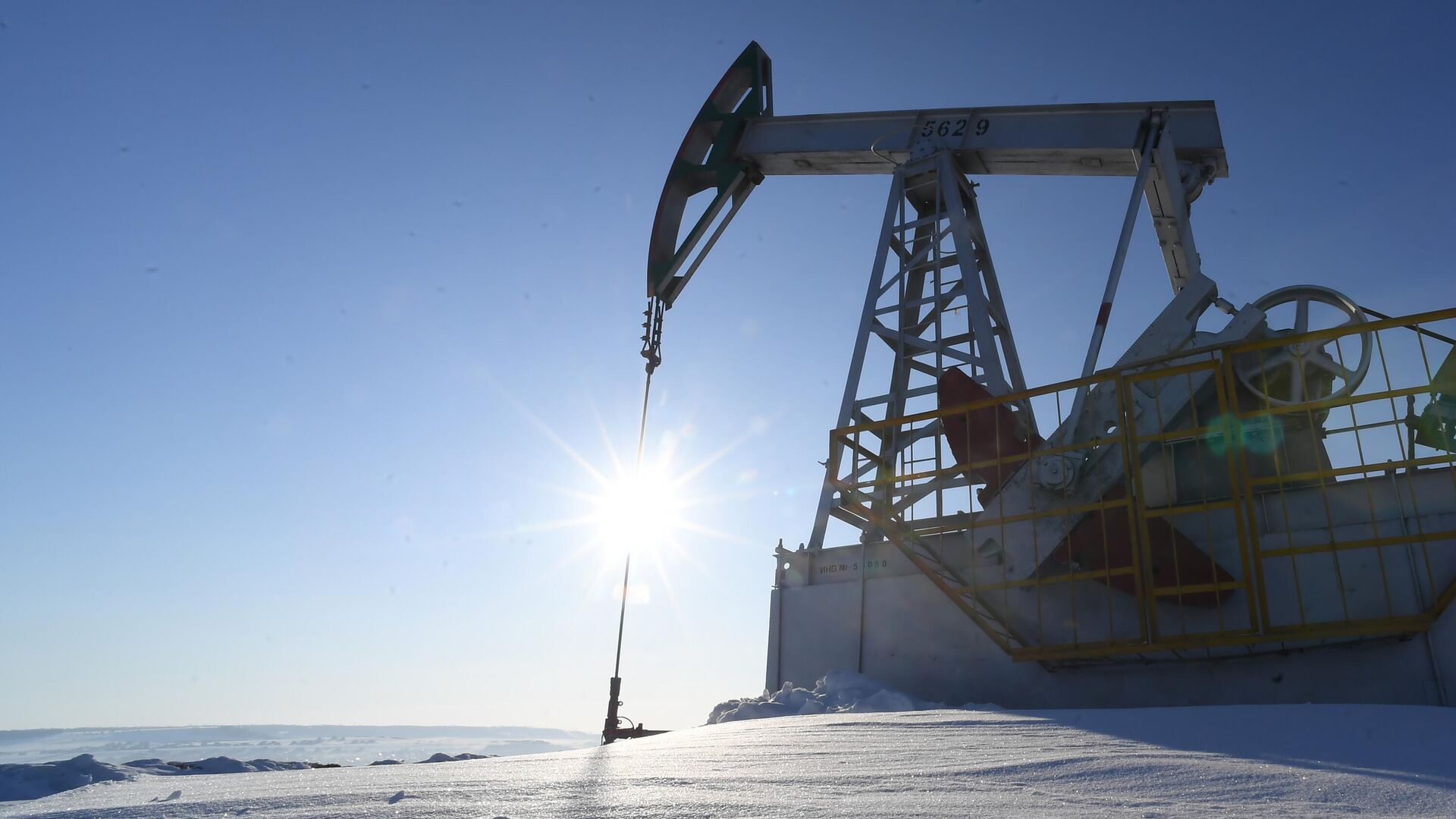https://sputnikglobe.com/20230213/russias-oil-production-cut-in-line-with-pledge-to-retaliate-for-wests-price-cap-expert-says-1107378616.html
Russia's Oil Production Cut in Line With Pledge to Retaliate for West's Price Cap, Expert Says
Russia's Oil Production Cut in Line With Pledge to Retaliate for West's Price Cap, Expert Says
Sputnik International
Russia’s decision to cut oil production is in line with its pledge to retaliate for the Western countries’ price cap, aimed at limiting Russia’s oil and gas export revenues amid the Ukrainian conflict
2023-02-13T13:50+0000
2023-02-13T13:50+0000
2023-02-13T13:50+0000
russia
russia
oil
opec
https://cdn1.img.sputnikglobe.com/img/07e6/0b/0c/1104045331_0:11:2990:1693_1920x0_80_0_0_bf22c45c86f90bbb7c6667c5b51f3518.jpg
Last week, Russia announced that it will voluntarily and without any international consultations reduce crude oil production by 500,000 barrels per day in March. "By announcing the cut, Russia is merely fulfilling its promise to retaliate against Western oil price cap by cutting production and halting all its oil exports to countries implementing the cap," the energy expert said. Salameh specified that it is very likely that Russian President Vladimir Putin had informed Saudi Crown Prince Mohammed bin Salman of the impending decision prior to the alliance’s ministerial meeting on February 5. In addition, the expert believes that Russia will achieve a budget surplus in 2023 given the dynamics of the oil market. Western countries have been seeking ways to limit Russia's income from oil and gas exports, as well as their dependence on Russian fuel since the country launched a military operation in Ukraine on February 24 last year. On December 5, the European Union placed a price cap of $60 per barrel on Russian crude oil, joined by the G7 nations and Australia. In late December, Putin signed a decree banning supplies of Russian oil and petroleum products if contracts directly or indirectly provide for a price cap. According to Kremlin spokesman Dmitry Peskov, the Russian president did not consult with OPEC+ allies before signing off on these countermeasures.
russia
Sputnik International
feedback@sputniknews.com
+74956456601
MIA „Rossiya Segodnya“
2023
Sputnik International
feedback@sputniknews.com
+74956456601
MIA „Rossiya Segodnya“
News
en_EN
Sputnik International
feedback@sputniknews.com
+74956456601
MIA „Rossiya Segodnya“
Sputnik International
feedback@sputniknews.com
+74956456601
MIA „Rossiya Segodnya“
cut oil production, russia’s oil and gas export
cut oil production, russia’s oil and gas export
Russia's Oil Production Cut in Line With Pledge to Retaliate for West's Price Cap, Expert Says
MOSCOW (Sputnik) - Russia’s decision to cut oil production is in line with its pledge to retaliate for the Western countries’ price cap, aimed at limiting Russia’s oil and gas export revenues amid the Ukrainian conflict, international oil economist Mamdouh Salameh told Sputnik.
Last week, Russia announced that it will voluntarily and without any international consultations reduce crude oil production by 500,000 barrels per day in March.
"By announcing the cut, Russia is merely fulfilling its promise to retaliate against Western oil price cap by cutting production and halting all its oil exports to countries implementing the cap," the energy expert said.
Salameh specified that it is very likely that Russian President Vladimir Putin had informed Saudi Crown Prince Mohammed bin Salman of the impending decision prior to the alliance’s ministerial meeting on February 5.
"This could be the reason why
OPEC+ didn’t see the need to change its production policies particularly that Russia’s production cut fits extremely well with its policy of supporting a Brent crude price above $80 a barrel," the energy expert emphasized.
In addition, the expert believes that Russia will achieve a budget surplus in 2023 given the dynamics of the oil market.
"In 2022 Russia had a current account surplus of $228 bn and trade balance surplus of $290 bn. Short of a fall in oil prices in 2023, which I think is very unlikely, Russia will achieve a budget surplus in 2023 similar to that of 2022," Salameh said.
Western countries have been seeking ways to limit Russia's income from oil and gas exports, as well as their dependence on Russian fuel since the country launched a military operation in Ukraine on February 24 last year. On December 5, the European Union placed a price cap of $60 per barrel on Russian crude oil, joined by the G7 nations and Australia.
In late December, Putin signed a decree banning supplies of Russian oil and petroleum products if contracts directly or indirectly provide for a price cap. According to Kremlin spokesman Dmitry Peskov, the Russian president did not consult with OPEC+ allies before signing off on these countermeasures.


